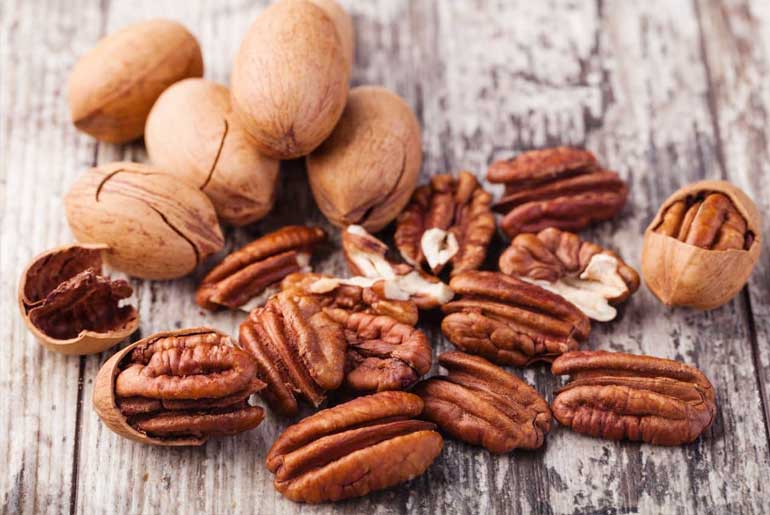The collaborative study conducted by Texas A&M AgriLife scientists suggests that daily consumption of pecans can help prevent obesity and various related health issues, including fatty liver disease and diabetes. The research provides scientific evidence supporting the traditional knowledge in the Americas that pecans are highly nutritious.
The study involved an interdisciplinary team, including researchers from the National Institute of Medical Sciences and Nutrition Salvador Zubiran in Mexico. They conducted experiments on mice models, applying pecans and high-fat diets. The results showed that pecans increased energy expenditure, reduced dysbiosis (imbalance of gut bacteria), and inflammation. Additionally, the study found that pecans modulate adipose tissue lipolysis (breakdown of fats) and enhance mitochondrial oxidative metabolism in the liver and skeletal muscle.
Cisneros-Zevallos, principal investigator for the study, published “Pecans and Its Polyphenols Prevent Obesity, Hepatic Steatosis and Diabetes by Reducing Dysbiosis, Inflammation and Increasing Energy Expenditure in Mice Fed a High-Fat Diet” in MDPI.
“Thanks to Dr. Cisneros-Zevallos’ work, we now know what potential mechanisms underlie that nutritional benefit,” Amit Dhingra, Ph.D., head of the Department of Horticultural Sciences stated. “Our department is focused on the areas of sustainability, wellness and food security, and this research illustrates the relevance of horticultural crops for human health.”
Furthermore, pecans were observed to have anti-inflammatory properties that can reduce low-grade inflammation, which is associated with the development of chronic diseases. Despite consuming a high-fat diet, the mice in the study maintained their body weight and avoided diabetes due to the beneficial effects of pecans.
“This observation is key when designing strategies for studies, the more we know of unique functionalities of pecans, the more possibilities to create healthier products,” Cisneros-Zevallos stated. “Pecans are of economic and historical importance to Texas and the U.S., and their production provides stability to farmers. This work will aid in the development of novel uses and products from pecans.”
This study was supported by the Texas Pecan Board, the Texas Department of Agriculture and the Institute for Advancing Health Through Agriculture at Texas A&M AgriLife.
These findings suggest that pecans have the potential to be considered a superfood and can be consumed directly or incorporated into functional foods and dietary supplements. This discovery opens up opportunities for pecans to be utilized in various products in the growing markets of health-conscious consumers seeking nutritious options to improve overall well-being.
Disclaimer:
The information contained in this article is for educational and informational purposes only and is not intended as a health advice. We would ask you to consult a qualified professional or medical expert to gain additional knowledge before you choose to consume any product or perform any exercise.








